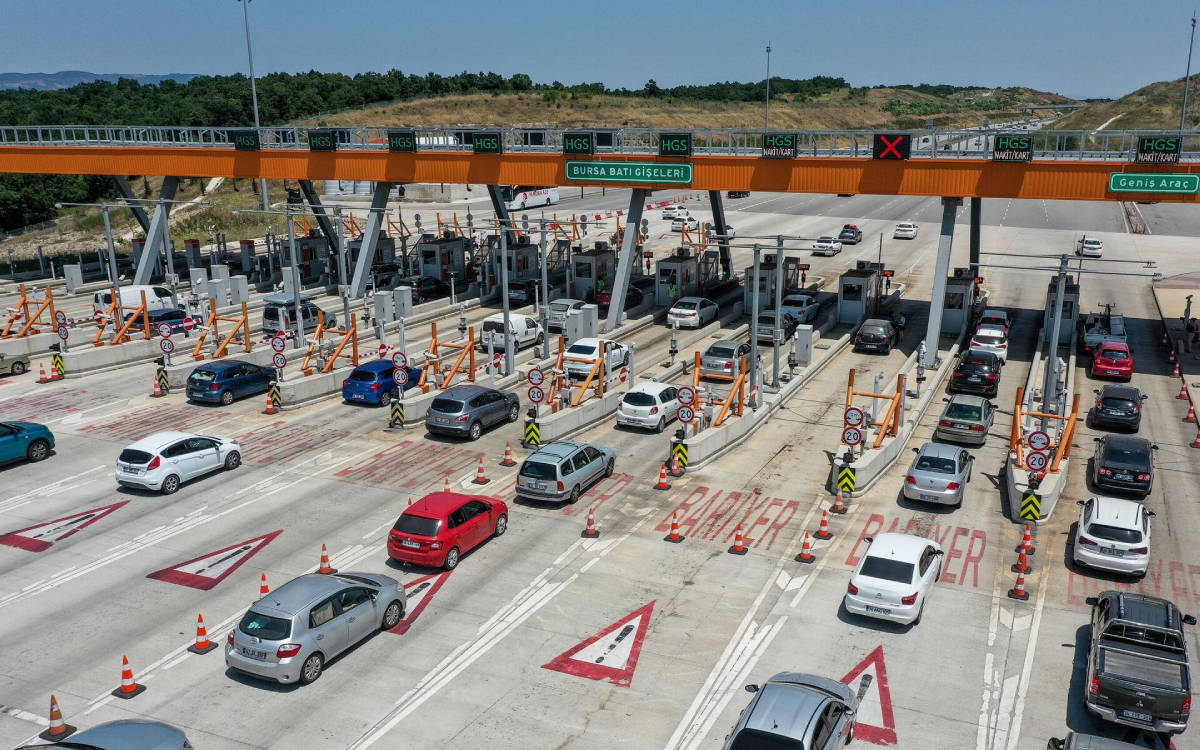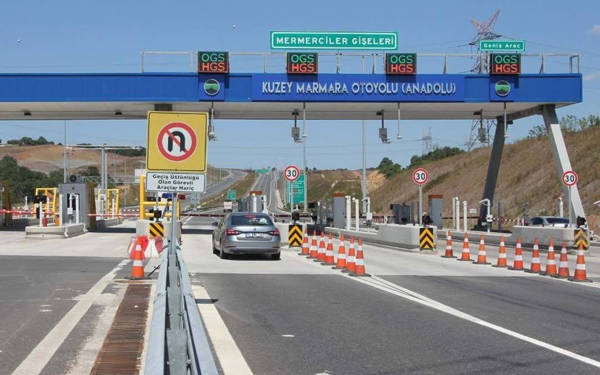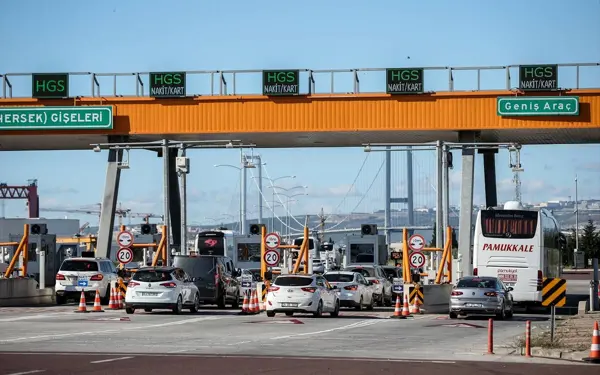Turkey's General Directorate of Highways has announced substantial increases in toll rates for highway and bridge crossings.
Effective from October 25, 2023, the toll for one-way car passage on the Bosphorus and Fatih Sultan Mehmet bridges, previously priced at 8.50 Turkish liras, has been elevated to 15 liras, marking a notable 76.5% increase (1 US dollar = 28.12 Turkish liras).
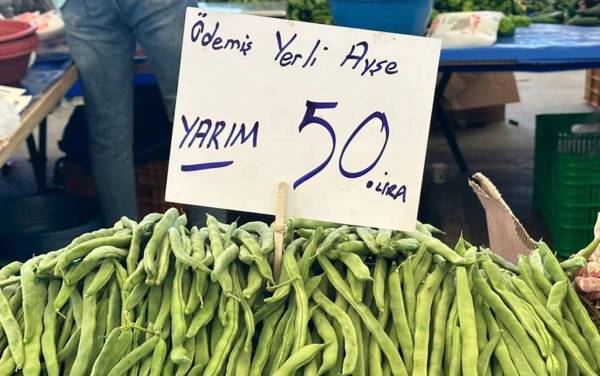
Rising inflation expected following post-election lira slide, tax hikes
These toll hikes come in the wake of a similar adjustment at the Eurasia Tunnel, where the one-way daytime passage fee for automobiles has risen from 53 liras to 80 liras, minibuses from 79.50 liras to 120 liras, and motorcycles from 10.35 liras to 31.20 liras. The tunnel management has also introduced a 50% discount for nighttime crossings.
The toll for crossing the Osmangazi Bridge, which links the province of Yalova to İzmit, with an automobile has surged from 184 liras to a substantial 290 liras, constituting a significant 57.6% increment. Minibuses, on the other hand, will now be charged 465 liras for the crossing.
Reactions
Citizens and advocacy groups have expressed their concerns over the toll hikes, emphasizing that increases ranging from 50% to 80% are impacting citizens' ability to access transportation. The Consumer Protection Association (TükoDer) issued a statement, asserting that the toll adjustments are hindering the fundamental right to transportation, which, in turn, impacts access to essential rights like work, health, education, and quality of life.
These changes raise questions about the role of public institutions and the private sector in determining transportation rates and the broader implications for citizens' access to essential services.
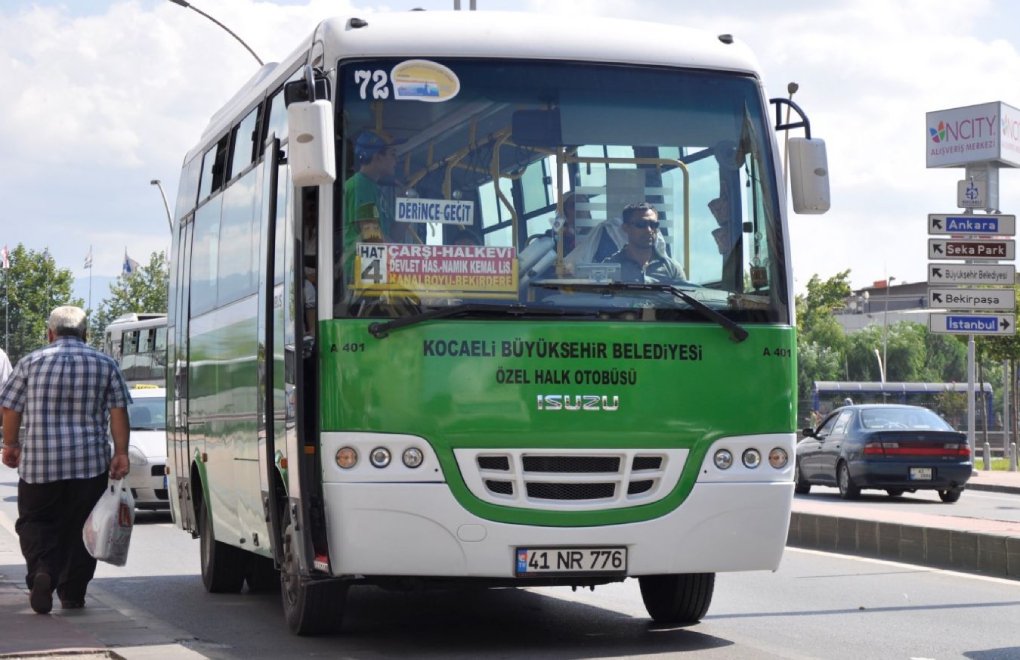
Surge in fuel prices triggers massive public transport fare hikes across Turkey
It's noteworthy that these toll hikes follow a commitment made earlier this year by President Recep Tayyip Erdoğan, assuring the public that toll rates for highways and bridges would not be increased in 2023. The recent adjustments have come as a surprise to many citizens who had counted on this commitment.
Background
The toll hikes are part of a series of tax and fee increases that the government has implemented since the May elections, where President Recep Tayyip Erdoğan maintained power. The increases are seen as an attempt by the government to cover the massive election spending and the budget deficit, which reached 5.5% of GDP in 2022, the highest level since 2009. The government also faces the costs of rebuilding the southern region that was hit by two deadly earthquakes in February 2023, which caused an estimated $100 billion in damage.
The tax and fee increases have affected a wide range of goods and services, such as fuel, electricity, natural gas, water, cleaning and hygiene products, tobacco, alcohol, mobile phones, cars, public transportation, and health services. Some of these increases have been as high as 50% to 80%, far exceeding the inflation rate.
The high inflation and the tax and fee hikes have eroded the purchasing power and living standards of the citizens, especially low- and middle-income groups. Many people have been struggling to afford basic necessities, such as food, housing, health care, and education. The Consumer Protection Association has warned that these hikes are violating the fundamental right to transportation and other essential rights. (HA/VK)





